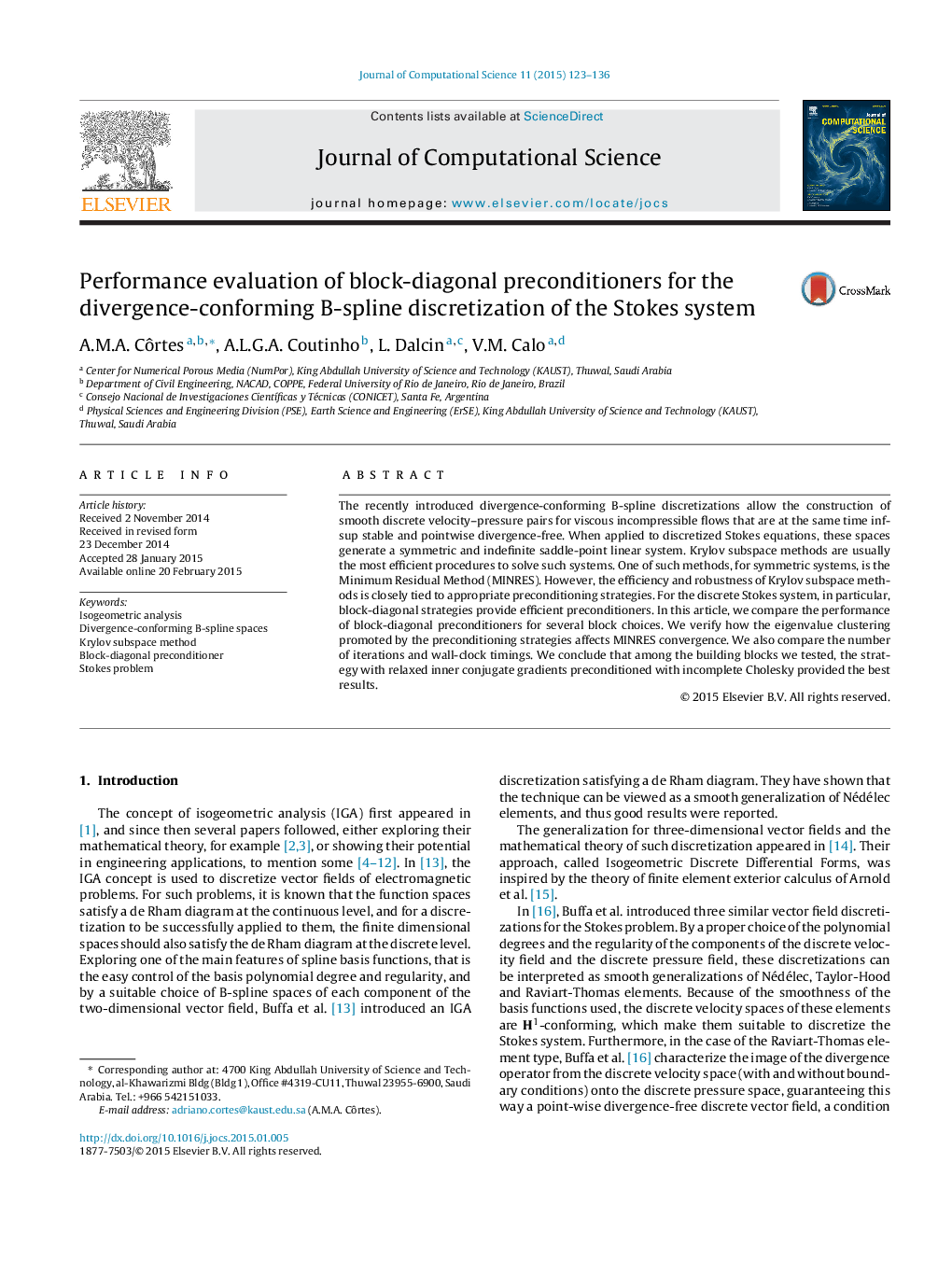| Article ID | Journal | Published Year | Pages | File Type |
|---|---|---|---|---|
| 6874566 | Journal of Computational Science | 2015 | 14 Pages |
Abstract
The recently introduced divergence-conforming B-spline discretizations allow the construction of smooth discrete velocity-pressure pairs for viscous incompressible flows that are at the same time inf-sup stable and pointwise divergence-free. When applied to discretized Stokes equations, these spaces generate a symmetric and indefinite saddle-point linear system. Krylov subspace methods are usually the most efficient procedures to solve such systems. One of such methods, for symmetric systems, is the Minimum Residual Method (MINRES). However, the efficiency and robustness of Krylov subspace methods is closely tied to appropriate preconditioning strategies. For the discrete Stokes system, in particular, block-diagonal strategies provide efficient preconditioners. In this article, we compare the performance of block-diagonal preconditioners for several block choices. We verify how the eigenvalue clustering promoted by the preconditioning strategies affects MINRES convergence. We also compare the number of iterations and wall-clock timings. We conclude that among the building blocks we tested, the strategy with relaxed inner conjugate gradients preconditioned with incomplete Cholesky provided the best results.
Related Topics
Physical Sciences and Engineering
Computer Science
Computational Theory and Mathematics
Authors
A.M.A. Côrtes, A.L.G.A. Coutinho, L. Dalcin, V.M. Calo,
